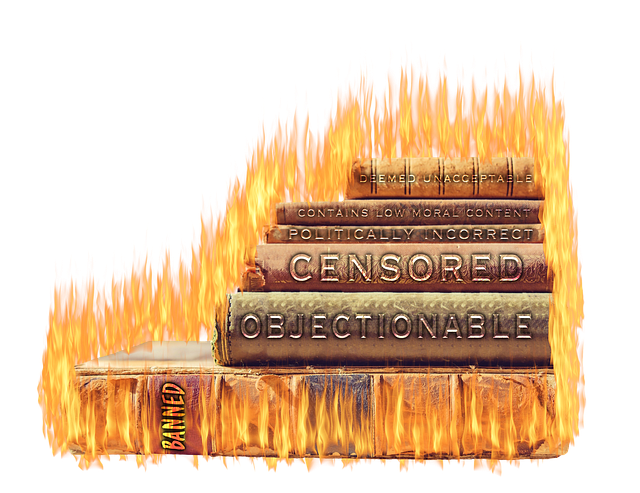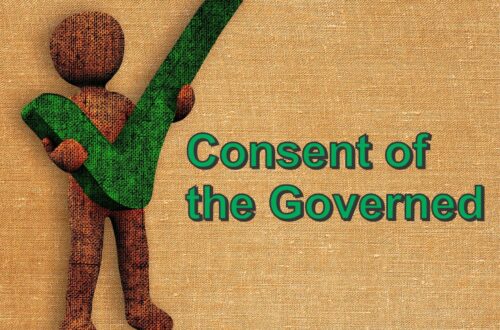Freedom of speech is a fundamental human right enshrined in the First Amendment of the United States Constitution and many other international and national human rights instruments. It is the right to express one’s opinions and beliefs without government interference. However, freedom of speech is not absolute. Certain types of speech are not protected by the First Amendment, such as threats of violence, obscenity, and incitement to crime.
One of the most common misconceptions about freedom of speech is that it gives people the right to say whatever they want, regardless of the consequences. However, this is different. Freedom of speech is not a license to spread misinformation, hate speech, or endanger others.
There are several reasons freedom of speech is not freedom to say whatever you want. First, freedom of speech must be balanced with other rights and values, such as privacy, reputation, and freedom from discrimination. For example, the First Amendment does not protect speech that defames someone or incites violence against them.
Second, freedom of speech is not a right to have a platform. Private individuals and businesses are not required to provide a platform for speech they disagree with. For example, a social media company can ban users who post hate speech or misinformation, even if the First Amendment protects that speech.
Third, freedom of speech is not a right to be free from the consequences of your words. You may face social or professional repercussions if you say something harmful or offensive. For example, you may be fired from your job.
Here are some specific examples of speech that the First Amendment does not protect:
- Threats of violence: The First Amendment does not protect speech that threatens to cause violence against another person or group of people. This includes threats of terrorism, genocide, and mass shootings.
- Incitement to crime: The First Amendment does not protect speech that encourages or incites others to commit crimes. This includes speech that incites violence, riot, or other unlawful activity.
- Obscenity: The First Amendment does not protect obscene speech. Obscenity is defined as speech that is sexually suggestive and appeals to a prurient interest.
- Defamation: The First Amendment does not protect false statements that damage someone’s reputation. Defamation can be in the form of libel (written defamation) or slander (oral defamation).
- Fraud: The First Amendment does not protect fraudulent speech. Fraudulent speech is speech that is made with the intent to deceive or mislead others.
In addition to these specific types of speech, the First Amendment does not protect speech directed at government officials if it is likely to cause a disturbance or interfere with the government’s ability to function. This is known as the “fighting words” doctrine.
It is important to note that the limits on freedom of speech are only sometimes clear-cut. There are many cases where courts have had to decide whether or not the First Amendment protects a particular type of speech. These cases can be complex and challenging to determine, and the outcome often depends on the case’s specific facts.
Despite limiting freedom of speech, it remains one of the most essential human rights. Freedom of speech allows us to express our opinions, beliefs, and ideas and to hold our government accountable. It also helps us to learn from each other and to develop new ideas.
Here are some of the reasons why it is essential to protect freedom of speech:
- Freedom of speech promotes democracy and civic engagement. When people can express their opinions and beliefs, they can participate more fully in the democratic process. They can hold their elected officials accountable and demand change. Freedom of speech also helps to create an informed citizenry. People can make more informed decisions about important issues by hearing different perspectives.
- Freedom of speech promotes innovation and creativity. Freedom of speech allows people to share new ideas and challenge the status quo. This is essential for innovation and creativity. When people are free to express their views, they are more likely to come up with new and innovative solutions to problems.
- Freedom of speech promotes human dignity and equality. Freedom of speech allows people to express their unique identities and perspectives. It also allows people to speak out against injustice and discrimination. Freedom of speech is essential for human dignity and equality.
While there are limits to freedom of speech, it is crucial to protect this fundamental human right. Freedom of speech is essential for democracy, civic engagement, innovation, creativity, human dignity, and equality.
Social Media Companies and Corporations Have the Right to Limit Speech on Their Platform or Business
Social media companies and corporations have the right to limit speech on their platform or business for many reasons:
- They are private companies and have the right to determine what kind of speech they want to allow on their platforms.
- Social media companies and corporations have a responsibility to protect their users from harmful content, such as hate speech, misinformation, and incitement to violence.
- Social media companies and corporations have a legitimate interest in maintaining a positive brand image.
Social Media Companies and Corporations Are Private Companies
Social media and corporations are private companies, meaning they are not subject to the same First Amendment restrictions as the government. The First Amendment protects individuals from government censorship but does not apply to private companies. This means that social media companies and corporations can set rules for what kind of speech they allow on their platforms.
Some argue that social media companies and corporations should be treated as public forums because they play a prominent role in public discourse. However, courts have generally rejected this argument, holding that social media companies and corporations are private companies and that they have the right to set their own content moderation policies.
Social Media Companies and Corporations Have a Responsibility to Protect Their Users
Social media companies and corporations have a responsibility to protect their users from harmful content, such as hate speech, misinformation, and incitement to violence. This is because social media platforms can spread harmful content quickly and easily.
For example, millions of people can see a social media post in hours. This can have a devastating impact on individuals and communities. For example, hate speech can lead to violence and discrimination against minority groups. Misinformation can lead to bad decision-making and undermine trust in institutions. Incitement to violence can lead to riots, terrorism, and mass shootings.
Social media companies and corporations have a responsibility to take steps to mitigate these risks. They do this by developing and enforcing content moderation policies prohibiting harmful content.
Social Media Companies and Corporations Have a Legitimate Interest in Maintaining a Positive Brand Image
Social media companies and corporations have a legitimate interest in maintaining a positive brand image. This is because their brands are valuable assets. A negative brand image can damage a company’s reputation, making attracting and retaining customers and employees more challenging.
Social media companies and corporations can protect their brands by limiting speech harmful to their reputation. For example, a social media company may ban users who post hate speech or misinformation. A corporation may boycott a supplier that engages in unethical or environmentally harmful practices.
Critics of Content Moderation
Critics of content moderation argue that it stifles free speech and is used to silence dissenting voices. They also say it is challenging to define harmful content and that social media companies and corporations often make arbitrary and unfair decisions about what content to remove.
However, weighing the benefits of content moderation against the costs is essential. Content moderation can protect users from harmful content and maintain a positive brand image. These are crucial benefits and outweigh the potential free speech costs.
Additional Considerations
In addition to the reasons discussed above, there are many other factors that social media companies and corporations may consider when making decisions about content moderation.
These factors include:
- The type of platform: Different platforms may have different content moderation needs. For example, a social media platform like Twitter is more likely to be used to spread misinformation than a video-sharing platform like YouTube.
- The size of the platform: Larger platforms may have more resources to invest in content moderation than smaller platforms.
- The laws of the jurisdictions in which the platform operates: Social media companies and corporations must comply with the laws of the jurisdictions in which they operate. This means they may need to remove illegal content in certain jurisdictions.
- The company’s values: Social media companies and corporations may have different values that inform their content moderation decisions. For example, a company that values diversity and inclusion may be more likely to remove hate speech than a company that does not.
Social media companies and corporations have to weigh all these factors when making decisions about content moderation. They should also be transparent about their content moderation policies and how they enforce them.





